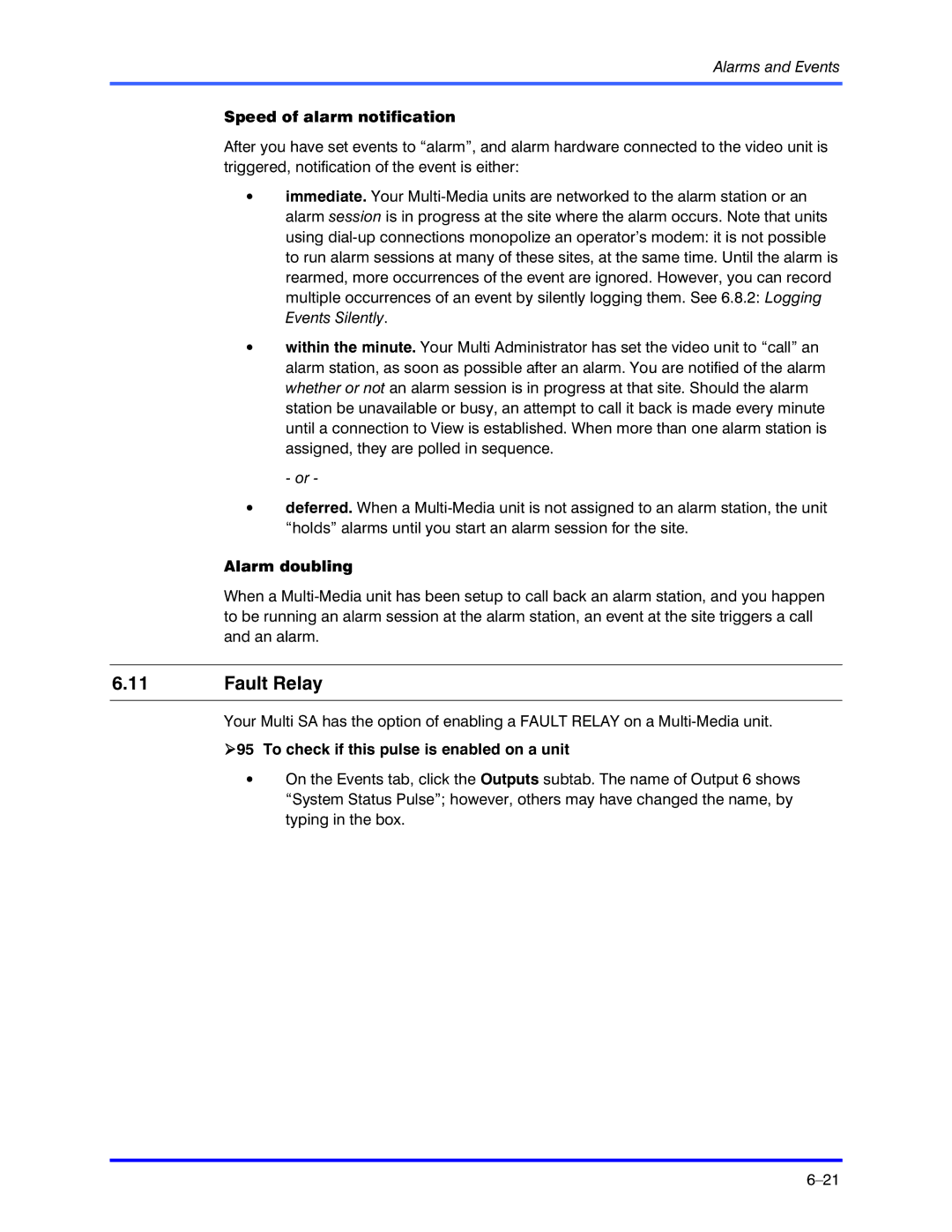
Alarms and Events
Speed of alarm notification
After you have set events to “alarm”, and alarm hardware connected to the video unit is triggered, notification of the event is either:
•immediate. Your
•within the minute. Your Multi Administrator has set the video unit to “call” an alarm station, as soon as possible after an alarm. You are notified of the alarm whether or not an alarm session is in progress at that site. Should the alarm station be unavailable or busy, an attempt to call it back is made every minute until a connection to View is established. When more than one alarm station is assigned, they are polled in sequence.
- or -
•deferred. When a
Alarm doubling
When a
6.11Fault Relay
Your Multi SA has the option of enabling a FAULT RELAY on a
!95 To check if this pulse is enabled on a unit
•On the Events tab, click the Outputs subtab. The name of Output 6 shows “System Status Pulse”; however, others may have changed the name, by typing in the box.
